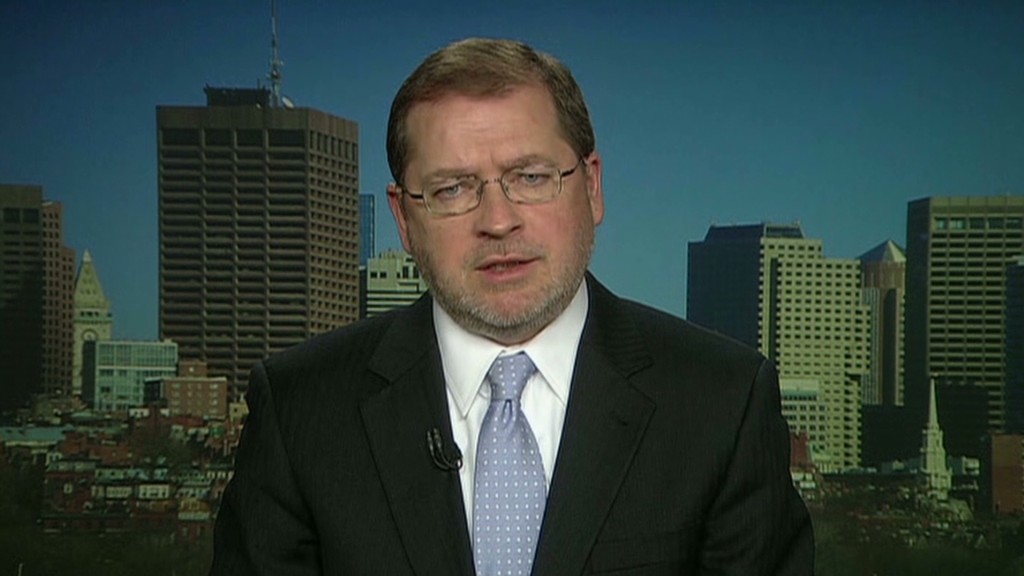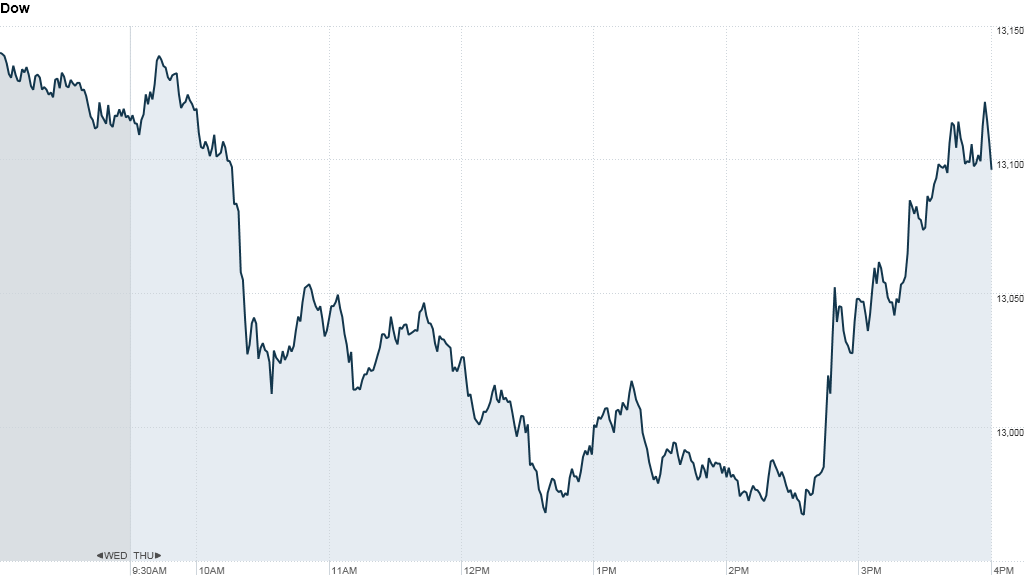U.S. stocks pared sharp losses Thursday as lawmakers scrambled to come up with a solution to the fast-approaching fiscal crisis.
After being down more than 1% earlier in the day, all three major indexes briefly moved into positive territory before edging lower toward the close. The Dow Jones industrial average, the S&P 500 and the Nasdaq all ended down 0.1%.
The late-day bounce came after lawmakers in the House announced plans to meet Sunday to discuss the fiscal cliff. "That's being perceived as a positive by the market," said Quincy Krosby, market strategist with Prudential Financial.
Congress and the White House have less than a week to resolve an impasse over tax hikes and spending cuts set to kick in automatically on Jan. 1. The White House denied reports that President Obama would send a scaled-back fiscal cliff plan to the Senate later Thursday.
Investors are holding out hope that a stop-gap solution will be put in place to prevent a full-blown crisis. But concerns about the fiscal cliff have already taken a toll on American consumers, the main engine of the U.S. economy.
The closely watched Consumer Confidence Index, which measures the American public's sentiment every month, was driven sharply lower in November by fears that the economy may tumble over the fiscal cliff. It also marked the largest decline since Standard & Poor's cut the nation's top tier credit rating last year.
Stocks have sold off for four straight sessions as hopes for a substantial budget agreement have diminished. While a scaled back deal would be better than nothing, investors are not taking any chances until they have more clarity. All three indexes are on track to end December in the red.
"Everyone in our industry is sitting on the sidelines waiting to see what happens in Washington," said Ben Schwartz, chief market strategist at Lightspeed Financial in Chicago.
Treasury Secretary Tim Geithner sent a letter to Congress late Wednesday warning that government borrowing will hit the debt ceiling on Monday. As a result, the Treasury Department will soon start using what it calls "extraordinary measures" to prevent government borrowing from exceeding the legal limit.

In other economic news, new home sales rose 4.4% in November, as a rebound in the housing market continues. Initial jobless claims came in at 350,000 for the week ended Dec. 22, falling 12,000 from the previous week.
Amazon (AMZN) shares slid after the company was blamed for a one-day Netflix Inc (NFLX) service disruption. Marvell Technology Group (MRVL)roup shares tumbled, after a jury ruled against the chip maker in a $1.17 billion patent infringement case.
Shares of Smith & Wesson (SWHC) rose after the gun company announced plans to buy back $15 million of its own stock. Smith & Wesson previously announced a $20 million buyback that it said it has already completed.
Related: Investors yank $150 billion out
European markets ended modestly higher in the first trading session after the Christmas holiday. Asian markets ended mixed, with Japan's Nikkei posting the strongest gains. The index has risen nearly 10% in the past month on expectations of further monetary policy easing and new government measures to stimulate the economy.
The U.S. dollar rose against the euro, British pound and the Japanese yen. The yield on the 10-year Treasury note slid to 1.7%. Oil prices were modestly lower, while gold nudged higher.



